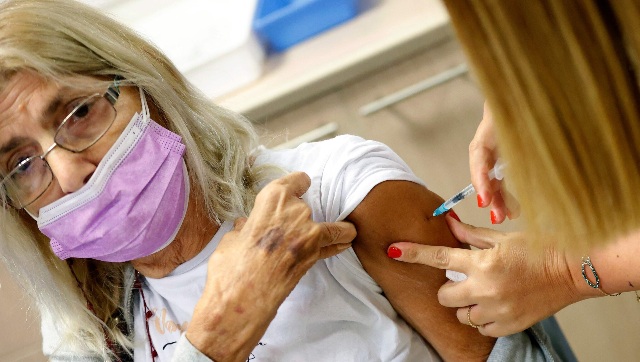Bengaluru: Ever since a vaccine for Sars-Cov2 is released into market, a worldwide debate is on about how many doses of the vaccine is adequate. Initially, it was a huge target of getting people vaccinated. Now, when the conditions seem to be under control, a booster dose is a hot topic amongst experts in major players of health sector. Whether or not a booster dose is necessary, there are different versions to this argument. Indian Council of Medical Research (ICMR) hasn’t approved a booster dose in India. Experts there feel there is no necessity of a booster dose as yet since enough study is not done on the subject. Dr Gagandeep Kang, noted virologist and microbiologist backed this decision stating whether people will develop more antibodies with booster dose is yet unknown. Hence India need not go for a booster dose at present. As of now, Israel and UK are the two countries that are advocating a third booster dose of COVID vaccine largely with a few others following the trail. Israel has even added booster dose mandatory for a complete COVID passport. They state the in-house studies have shown great improvements in antibody levels of people who had all three shots. Situation in India differ widely compared to these countries. Several hospitals are receiving enquiries from people wanting to take a booster dose. Also, there have been reports of instances of health care professionals taking a third jab of the ‘extra’ COVID vaccine that would otherwise be wasted. Senior doctors in the Technical Advisory Committee for management of COVID-19 in Karnataka opined that a booster dose be given to health care workers and frontline warriors if not everyone. Sri Jayadeva Institute of Cardiovascular Sciences has published a study on the antibody levels in people who have taken two vaccines within four weeks. The study proved that their antibody levels are really high and hence a reduction in the gap between the doses is advisable (as against 84 days now). This would also reduce wastage to a greater extent, said Dr Manjunath CN, Director, SJICR. “We are planning to do another study on the same set of people after six months. This will give a clarity on the volume of antibodies after a certain time. Also, this vaccine should be looked at just like our regular flu vaccine. The vaccine’s power may or may not wean off in a year’s time. We will need a new shot by next year if that happens instead of a third one. Only studies can clear things”, he added. Those that are going for a booster dose now say they found lesser antibodies in their body now. These are the first batch of health care professionals who finished both doses by February 2021. “A reduction in antibody is something I was concerned because I haven’t been infected by COVID until now. And the antibodies are purely from the two jabs that I took”, said a health worker who requested anonymity. Dr Sunil Kumar DR, Epidemiologist and Public Health Research Specialist says health care professionals need a booster dose. “They are constantly exposed to virus. Whether there will be an outburst of third wave or not, their protection needs to be taken care of. “Around 130 countries across the globe haven’t even begun vaccination program. Also, WHO has only said that ‘Immuno-compromised’ population (people suffering from various serious infections like HIV, HPV etc and also those who underwent organ transplant and are under cancer treatment) should get the booster dose. It hasn’t mentioned health care workers or frontline warriors in that list. But, we should be ready keeping our frontline warriors safe. We have already erred badly during second wave. A third shot of vaccine that would otherwise turn waste can be recommended”, he adds. A clarity on this is expected by the end of the year.
As of now, Israel and UK are the two countries that are advocating a third booster dose of COVID vaccine largely with a few others following the trail.
Advertisement
End of Article


)

)
)
)
)
)
)
)
)



